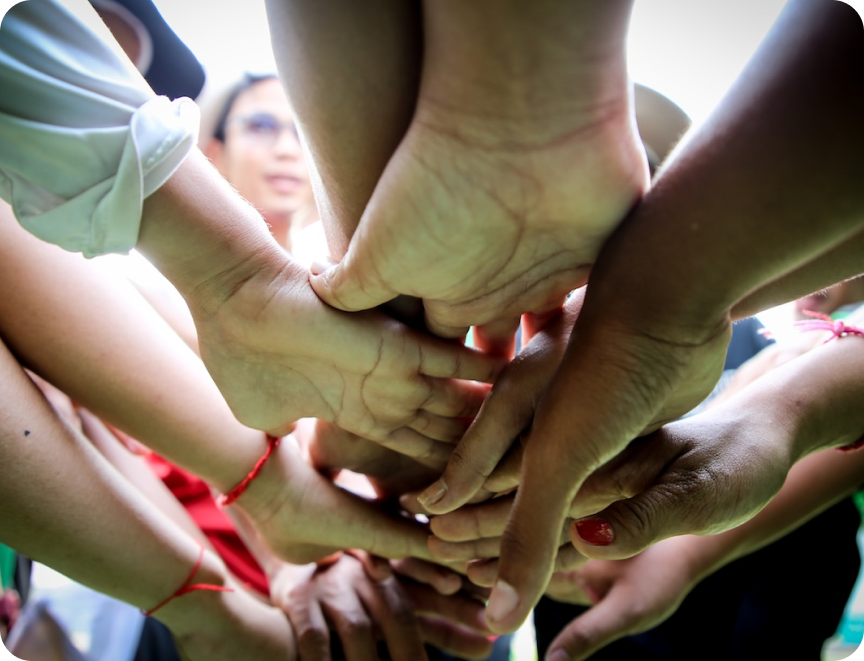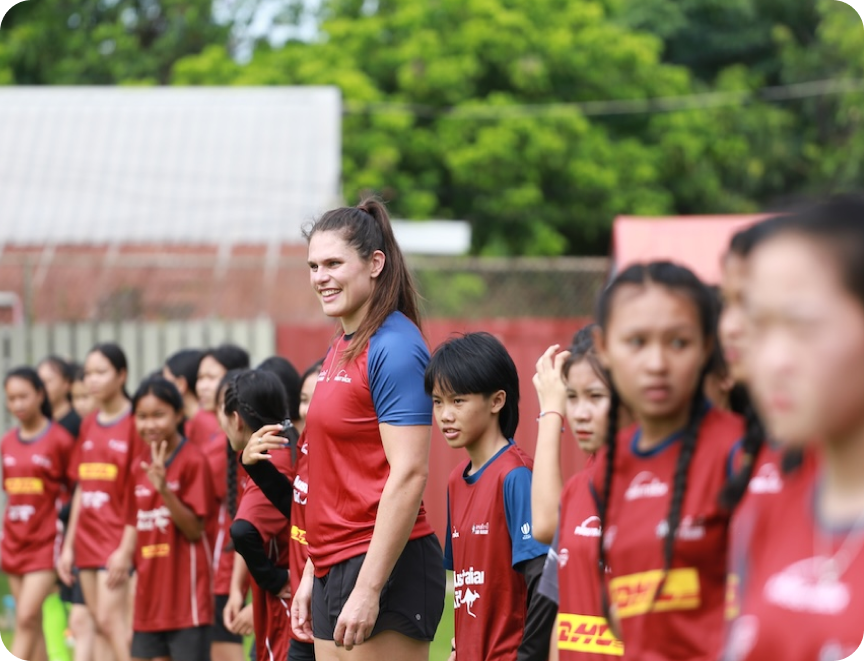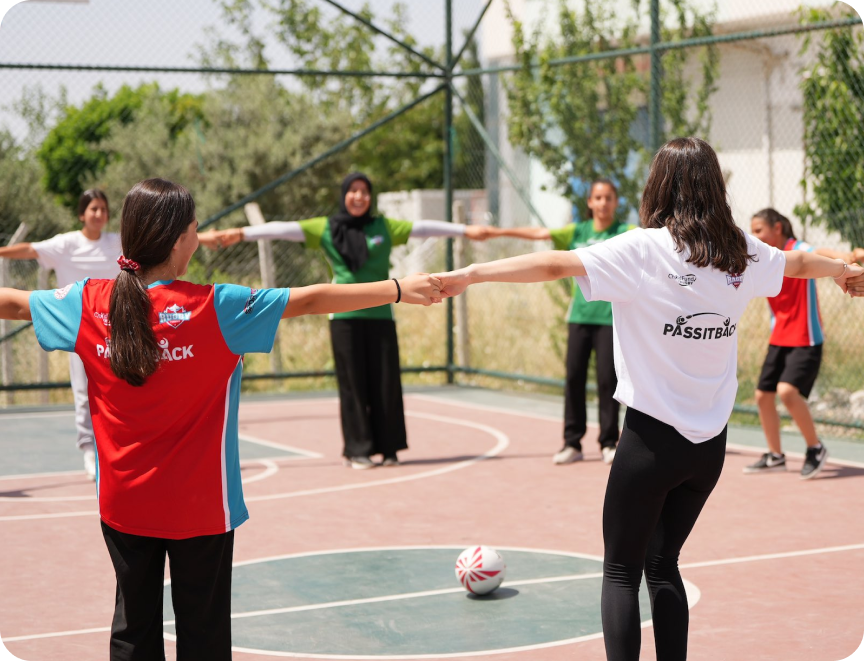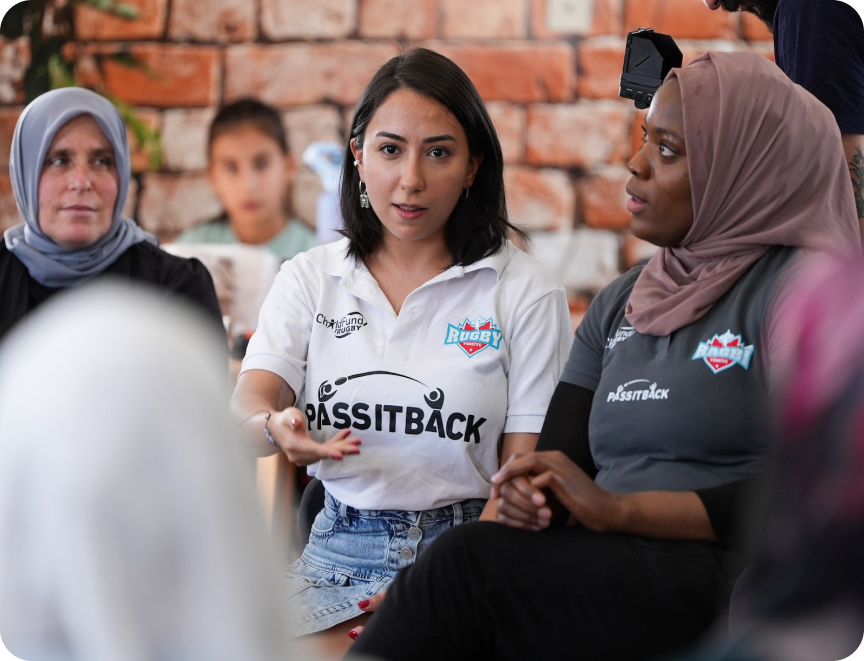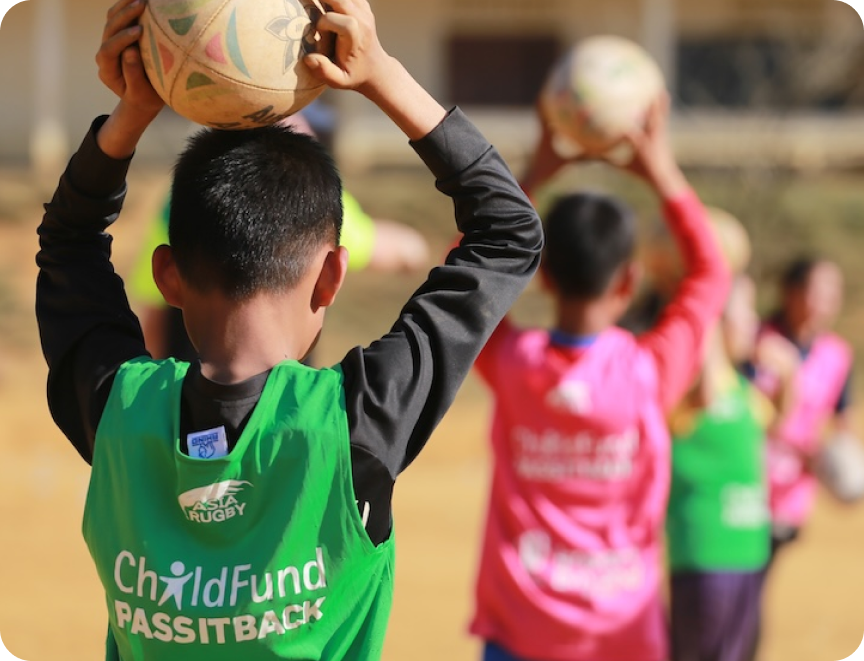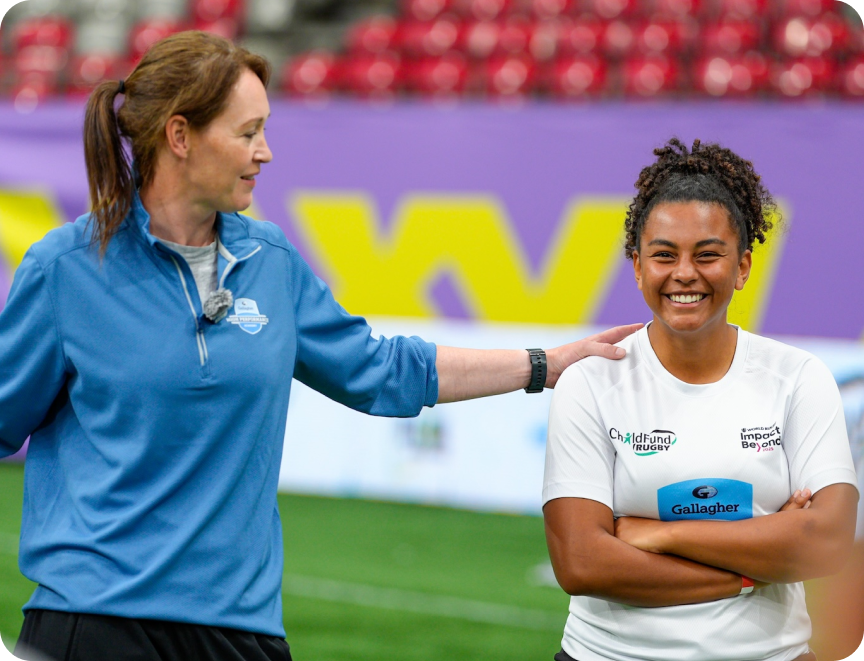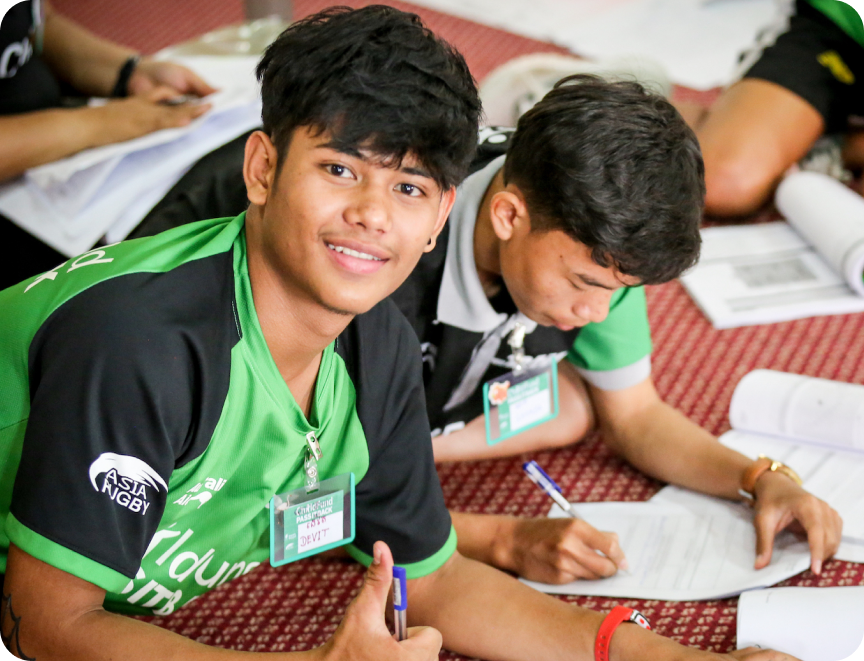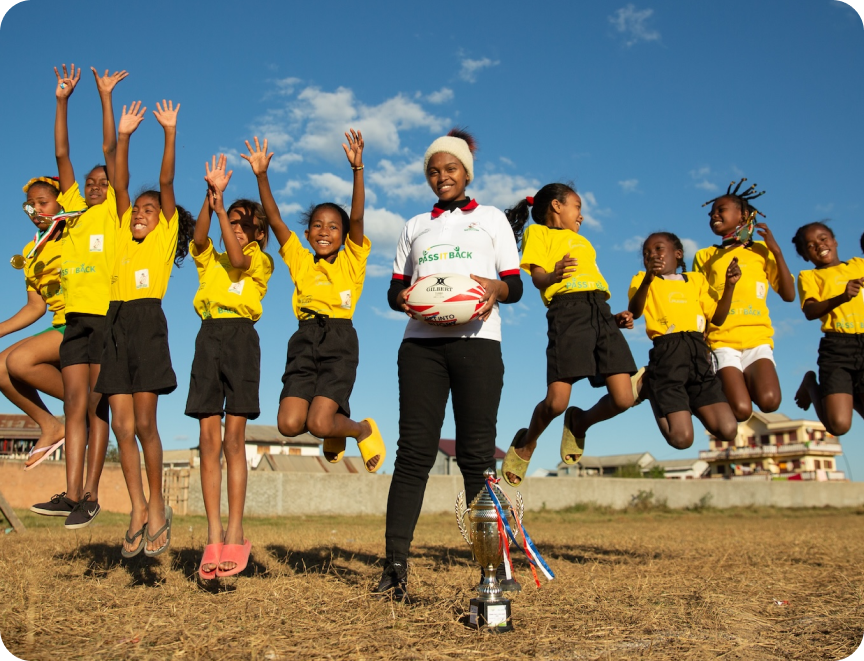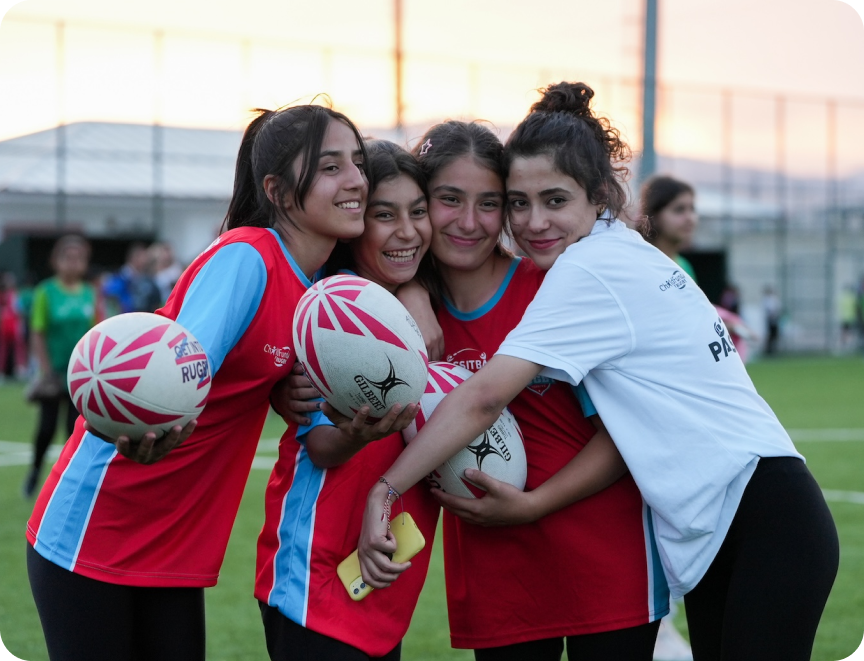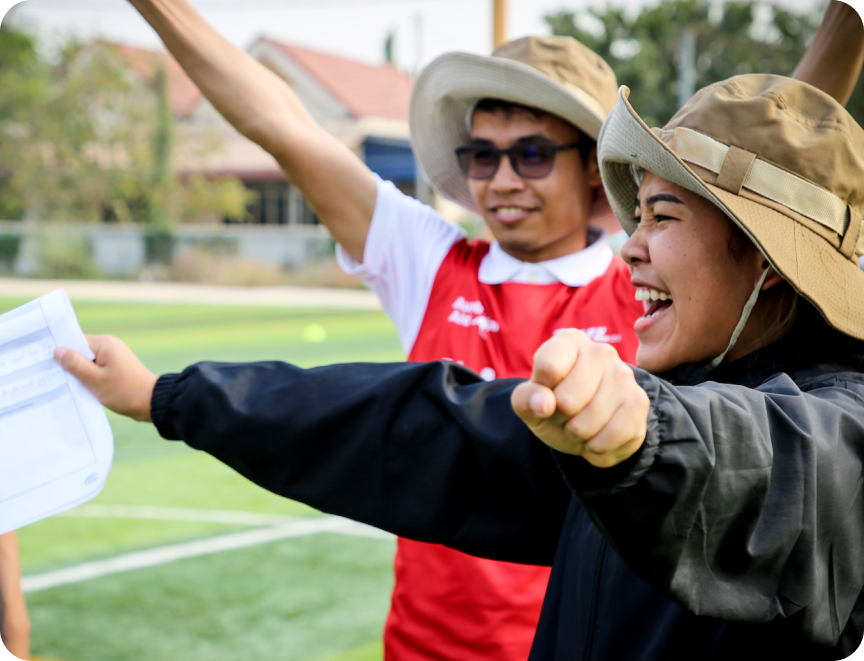“It is not common for mothers like us to do activities like this; people in our society believe that women should just stay home instead of playing sport.”
The society generally expects mothers to stay home, take care of the kids, cook, and clean. In some rural areas in Vietnam, mothers who go out of their homes and do what is traditionally deemed as men’s work, are often frowned upon. In this story, we get to learn more about five mothers who are breaking the barriers and challenging the society’s expectations of mothers by being rugby Coaches.
The Mothers
One winter morning in Vietnam, Huyen woke up early while it’s dark outside — not to prepare breakfast for the whole family or to tend to the rice paddy. She put on her shoes to join other Coaches who were all heading for their first ever international contact rugby tournament, the 2019 Hanoi 10s. The team were going to compete under the flag of the Kim Boi Wild Cats, an amateur rugby club founded in Hoa Binh, Vietnam by a number of Pass It Back Coaches. Together with Huyen, there were also four other mothers, including Lan, Ha, Thin, and Diep, who all had never competed at a contact rugby tournament before, and of course, were super nervous.
As Coaches, mothers, wives, and daughters-in-law, these five women share similar challenges in their multiple roles.
“Being a mum and a family member is a time-consuming full-time job. When I go outside to coach or work in the farm, there is always housework waiting for me when I return. My husband and my parents-in-law help a bit but ultimately, I am responsible for the household chores. So, most of the time my thoughts are consumed by housework and taking care of other family members,” said Lan, mother of two.
Huyen, one of the first ever Pass It Back Coaches in Vietnam, added, “Being a mother is wonderful, however, it also means that we have less time for ourselves and for social activities. I believe that there aren’t many mothers in rural areas who have the time and opportunity to play sports. To step out of our homes to become Coaches, and out of our villages to play contact rugby, we had to overcome a lot of fears and challenges. It is not common for mothers like us to do activities like this; people in our society believe that women should take care of the home instead of playing sport.”
Their First Ever Contact Rugby Game
As the mothers arrived at the pitch, they immediately got overwhelmed. The players from other teams ran fast and tackled super hard. And the size of some of the foreign players surprised them. Soon after seeing some big tackles in the games before their first match, the mothers grew a little scared. The thought that this was a pointless exercise crept into their minds, along with the thought that they would lose, and that they shouldn’t be playing anyway.
“I was really worried before the competition because contact rugby is very different from the tag rugby that we play within the Pass It Back curriculum. In contact rugby, players need to have good physical strength and technical skills to be able to play well. Players from other teams had large physiques and loads of experience. In a match, many hard collisions occur, and injuries can happen if people don’t use good technique or are not experienced enough,” said Lan.
But, their desire to play rugby won over, and soon they were running onto the field for their first game ever, one of the many moments that would become a very memorable day for them all.
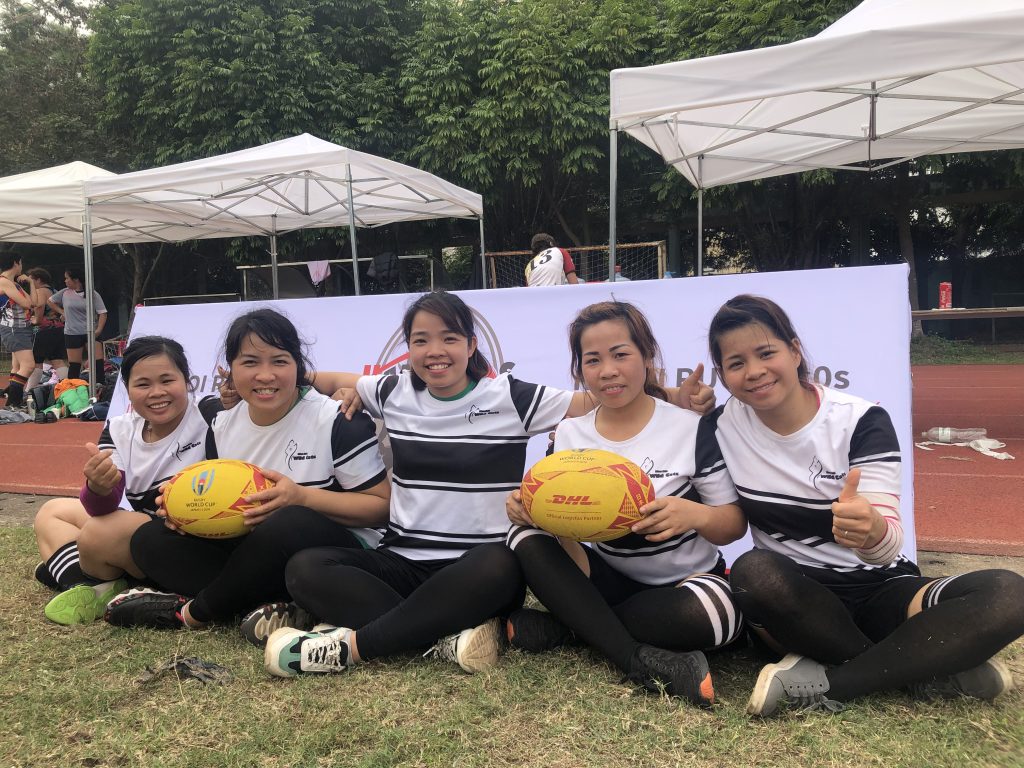
From left to right: Diep, Huyen, Ha, Thin, and Lan.
Ha, mother of a young girl, shared how she gained her motivation to play in the end: “Some of us didn’t even want to participate in the competition initially. But the encouragement of other players inspired us to play. While we are not familiar with contact rugby, we put in an energetic performance, which was totally different to the nerves we showed before the game. I think we did a great job as first-time players. At first, I was afraid of being tackled to the ground, so I deliberately backed away sometimes, and I also passed the ball before the defenders could tackle me. People said I ran like a penguin, too. But, after two matches, I gathered up my courage to take the ball and run forward into contact. We only succeeded in turning the ball over a few times, however, those small successes gave us strong motivation to keep trying.”
Diep, mother of two, recalled how she felt on the day “I must say that playing a contact sport like rugby was beyond my imagination. I was trembling when watching all the tackles and collisions from the sideline. I was knocked down twice on the pitch; my body ached all over. But from that that moment, I started to feel more engaged, I wanted to grab the opponents and tackle them, or pull them down by their jerseys. With my teammates rushing in, we managed to bring down some of the opposing players. In those moments, I felt so excited.”
Eventually, the first-time gamers were totally overpowered by their opponents, they fell, got tackled so many times and committed so many infringements. They lost the games.
When Losing is Winning
After the game ended, the mothers ran to each other for a tight group hug. Together, they have done something unimaginable. It was not only about how to play rugby, but also about exploring their potential and to know that they are stronger than they, and other people, think.
“We are so proud of what we have accomplished,” said Ha. “Although I ran like a penguin, I kept on running, together with my teammates. Playing with my fellow Coaches as a team was an important motivator, it drove me to learn from and enjoy the new experience. As a married woman with a daughter, I am proud that I was able to get to play a physical sport like rugby.”
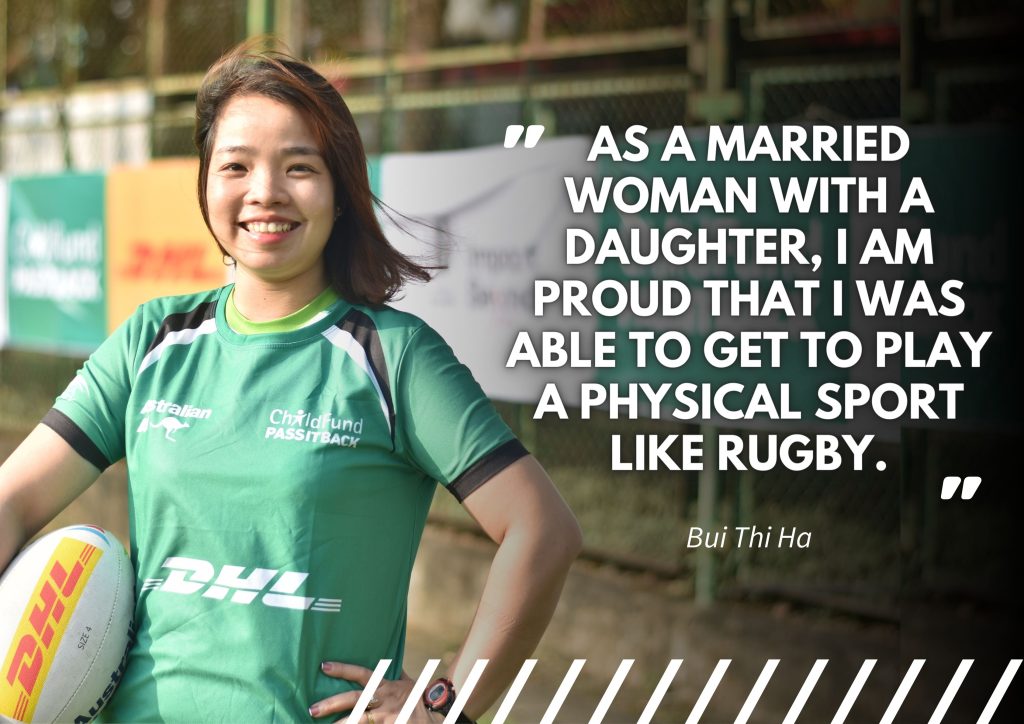
Diep admitted that there was some disappointment about the results of each game, which lingered a little after. But she didn’t dwell on it. “Rather, we held onto the excitement and enthusiasm we experienced throughout the day, until the very last game. Our team was fantastic. We gave it everything we had. I could see the enthusiasm and willingness to learn from our failures in my teammates. Everyone was so brave. Although we lost the games, we won over our fears.”
Lan continued, “When I got home, I told my sisters about the tournament and now they all want to have the same experience. I believe that if you put in your best effort, time after time, you will eventually succeed. At the Hanoi 10s tournament, I did things that I previously thought were impossible for me. Conquering my own doubts felt terrific and was more motivating than winning. I know that I can use this same motivation to face many of the other challenges I face as a mother.”
Huyen is proud being part of the Kim Boi Wild Cats , the first all-Vietnamese women’s team in the history of rugby. “Now, I have registered for a training course in contact rugby, because I want to have more opportunities to play the game, and be better at it. Everyone can play contact rugby; not just those with great physical strength. This includes married women with children like me; if we are given opportunities to learn the sport and develop confidence and passion for it, there’s no reason why we can’t play it.”
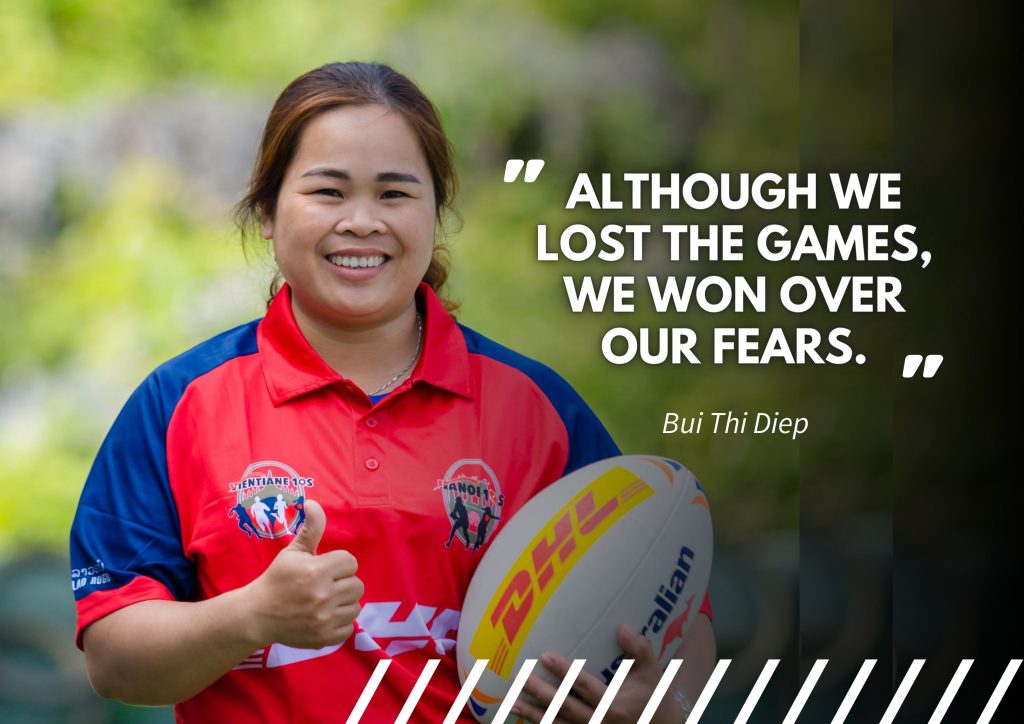
Some time after that, a contact rugby game was organised at the end of a Pass It Back competition. “Coaches played, and our players and their parents watched and cheered. These were the first contact rugby matches to be played in Kim Boi District. We are extremely proud of this achievement,” Diep shared excitedly.
A year after that, some of the first-ever community rugby clubs were born in Hoa Binh, as a result of the increased interest of playing rugby in the area. Today, two community rugby networks, the Tan Lac Rugby Network and Kim Boi Rugby Association have been successfully registered, managing up to seven clubs across Hoa Binh Province. All from something people once never believed in.
Story by Linh Truong, Communications & Content Officer.



